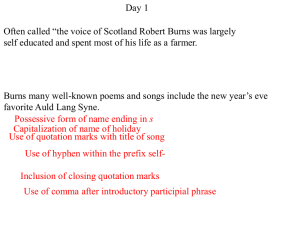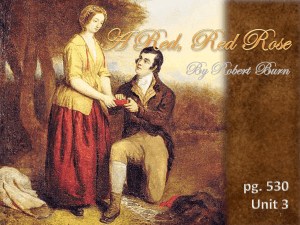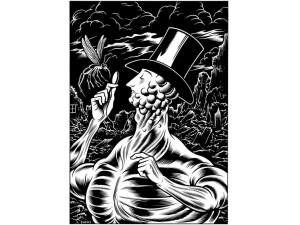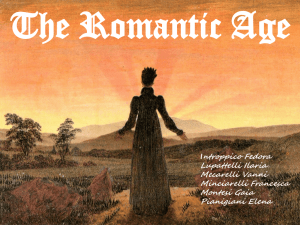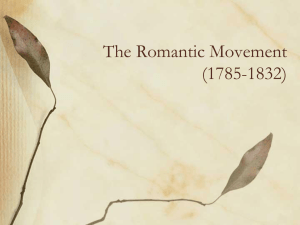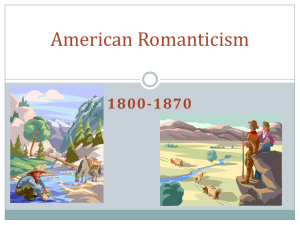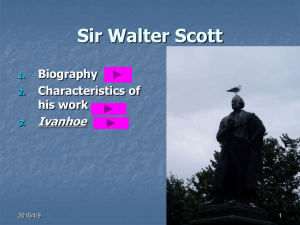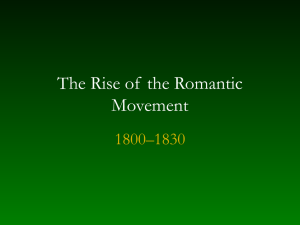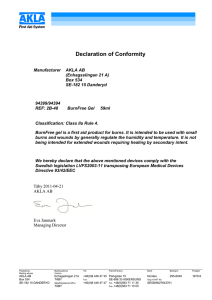Document
advertisement
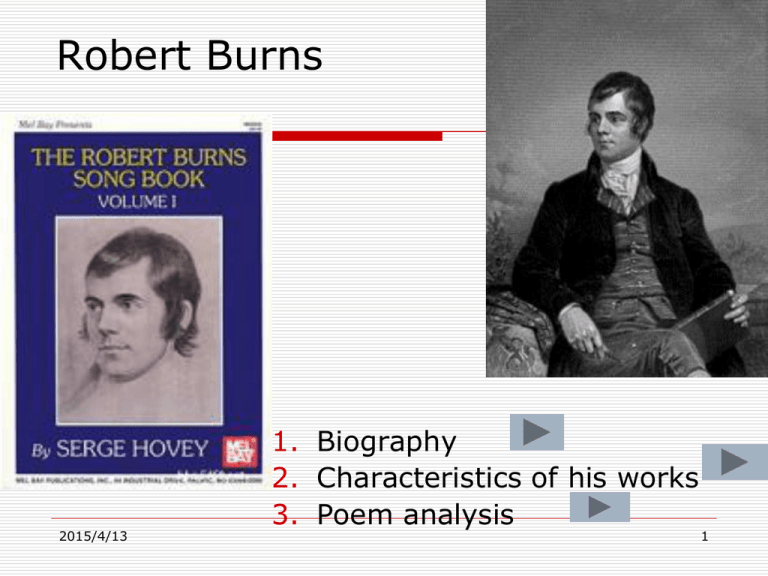
Robert Burns 2015/4/13 1. Biography 2. Characteristics of his works 3. Poem analysis 1 Biography Born in Alloway, Ayrshire, Scotland, in 1759, the son of a tenant farmer, Burns received a good, although limited, formal education. After his father's death in 1784, Burns managed his family's tenant farm. He had already turned to poetry in his spare time, recording his first pieces in a “Commonplace Book” begun in 1783. He had already turned to poetry in his spare time, recording his first pieces in a “Commonplace Book” begun in 1783. His first volume of verse, called Poems, Chiefly in the Scottish Dialect, published at Kilmarnock in July 1786, was immediately successful. 2015/4/13 2 Biography In 1789, he succeeded in obtaining a government position, which improved his finances considerably . Two years later, he moved to Dumfries where he remained until his death of heart disease in 1796. In the thirty-seven years of his life, Burns rose from the humble condition of tenant farmer to that of unofficial Scottish national poet. He had received his inspiration from his own soil, had made use of the songs and tales of old Scotland, and had chosen, for the most part, the locale, idiom, and dialect of his own people. 2015/4/13 3 Characteristics of his works He is romantic. He was interested in the past, particularly in the old songs of his native land, and did more than any other man to rescue and preserve his literary heritage. He shared the Romantic belief in the importance of the common man. Interested in America and sympathetic to the French Revolution, he thought of himself as one of those working for a new and better world. His poetry was predominantly lyrical, another Romantic characteristic, and his use of dialect was a way of revolutionizing poetic diction. There is an extravagance in his imagination which is also Romantic and totally alien to the neoclassical spirit of restraint. He was able to unite nature and man into a single vision. 2015/4/13 4 Characteristics of his works Although Burns's idiom was Scottish, he wrote with a deep understanding of all humanity, and some of his best songs —“A Red, Red Rose” and “John Anderson My Jo”— reveal with beauty and depth the emotional and lyrical side of man. Although Burns's idiom was Scottish, he wrote with a deep understanding of all humanity, and some of his best songs —“A Red, Red Rose” and “John Anderson My Jo”— reveal with beauty and depth the emotional and lyrical side of man. His farmer's life gave him a strong sense of social injustice, which he expressed in protest poems such as “The Twa Dogs” and “The Jolly Beggars.” His love of gaiety, the life of the tavern, and of bonnie lasses gave him the verve and flair for some of our finest convivial songs —“Green Grow the Rashes, O” and “For A' That, An' A' That.” The spirit of his nation which had almost lost its identity under English rule surged in his breast and flowed into his poetry. Poems like “Scots Wha Hae” and “My Heart's in the Highlands” endeared Burns to his fellow Scotsmen who recognized in his patriotic outbursts their own voices. 2015/4/13 5
